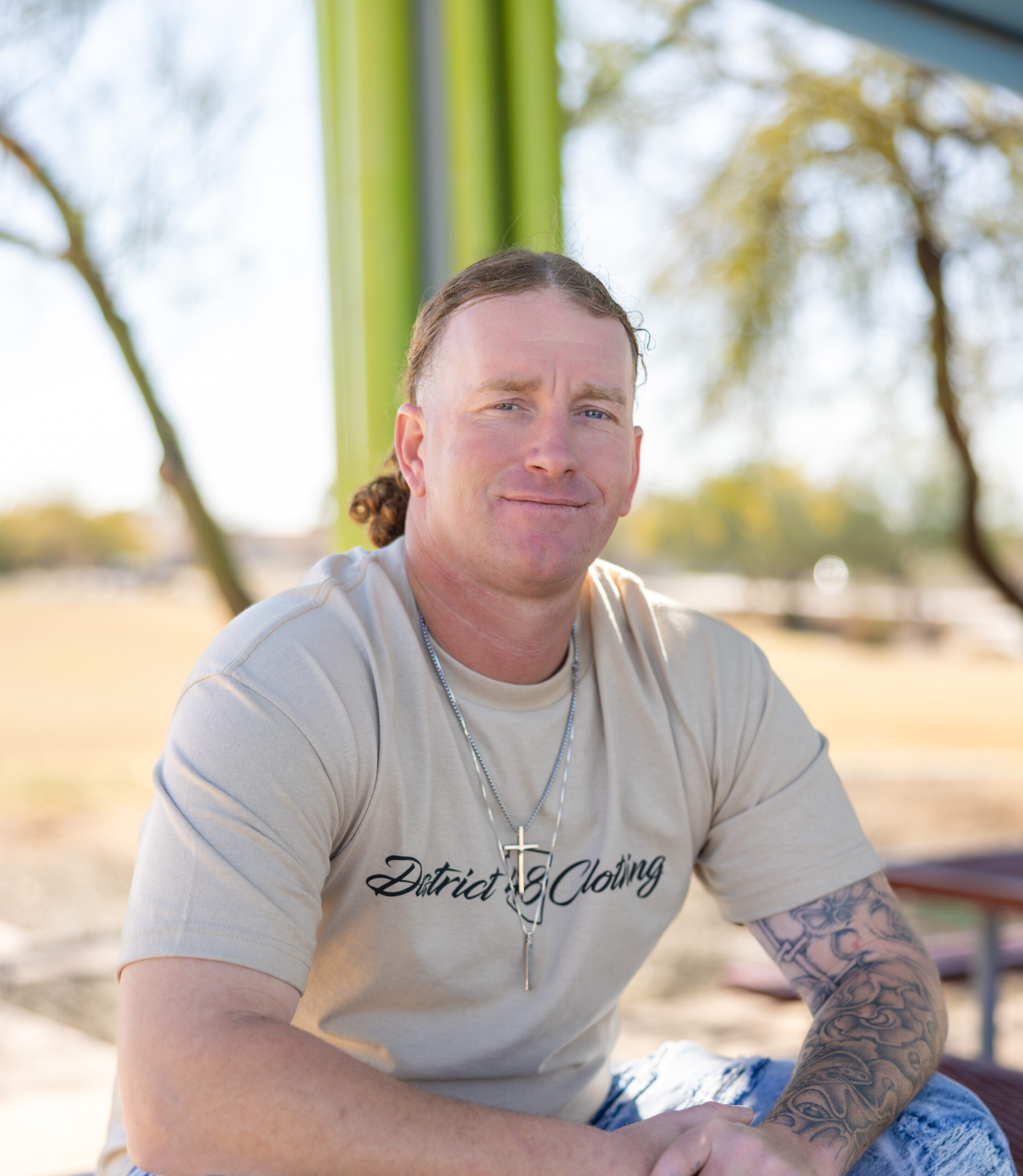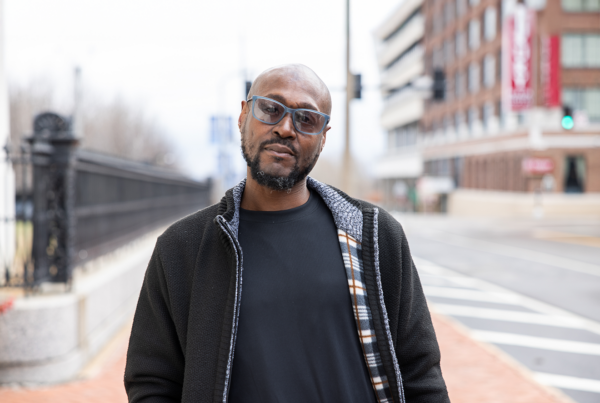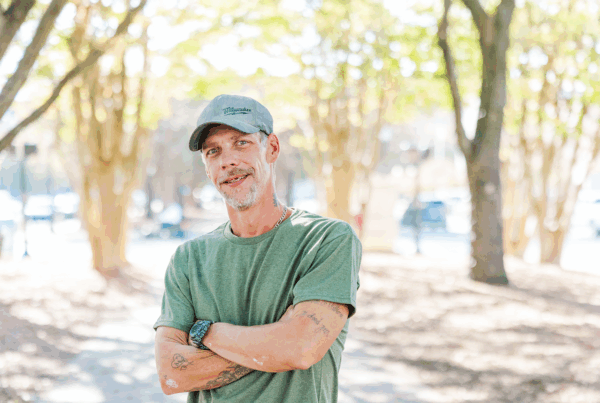In early 2023, Ronnie was serving a four-month prison sentence for violating his parole. The 39-year-old Phoenix resident had been struggling with a destructive addiction to methamphetamine for years. His path to recovery began in prison after he immersed himself in the drug treatment program. Being surrounded by others similarly determined to overcome addiction proved an invaluable tool for recovery. It marked the first time in 20 years that he made great strides towards sobriety.
Nearing the end of the prison sentence, Ronnie started making plans to enter a community-based inpatient drug treatment program once he was released. But his plans were disrupted when he learned that the Maricopa County Sheriff’s office filed new charges against him for an offense that occurred before he was imprisoned. Instead of going to treatment as planned once he left prison, correctional officers transferred him to the Maricopa County Jail so he could stand trial.
Treatment for Ronnie’s methamphetamine addiction stopped the moment he arrived at the Maricopa County Jail. Unlike prison, the county jail didn’t offer any in-person programs for people struggling with substance use. This isn’t uncommon – treatment for drug addiction in jails can be woefully inadequate, if it exists at all.
“I knew that sitting in jail and doing nothing would result in the same ending as always – with me relapsing.”
All the facility offered Ronnie was a wireless tablet that he could use to read educational programming content. “My recovery has been more hands-on. Not virtual,” he said. “Being surrounded by people who want to change is what I knew would help me. There was no program for me to better myself. I didn’t want to stop my recovery. I knew that sitting in jail and doing nothing would result in the same ending as always – with me relapsing.”
The jail system in Maricopa County is particularly fraught with a long history of humanitarian concerns, including lack of beds or bunks at intake, contaminated food, and inadequate medical care. Overcrowding and understaffing, which have been persistent at the Maricopa County Jail, cause significant health and safety issues. Since 2020, at least 95 people have died while awaiting trial inside Maricopa’s County Jails. This stress further threatened his sobriety. “The jails in Maricopa County are some of the worst in the country,” Ronnie recalled. “The environment…is awful.”
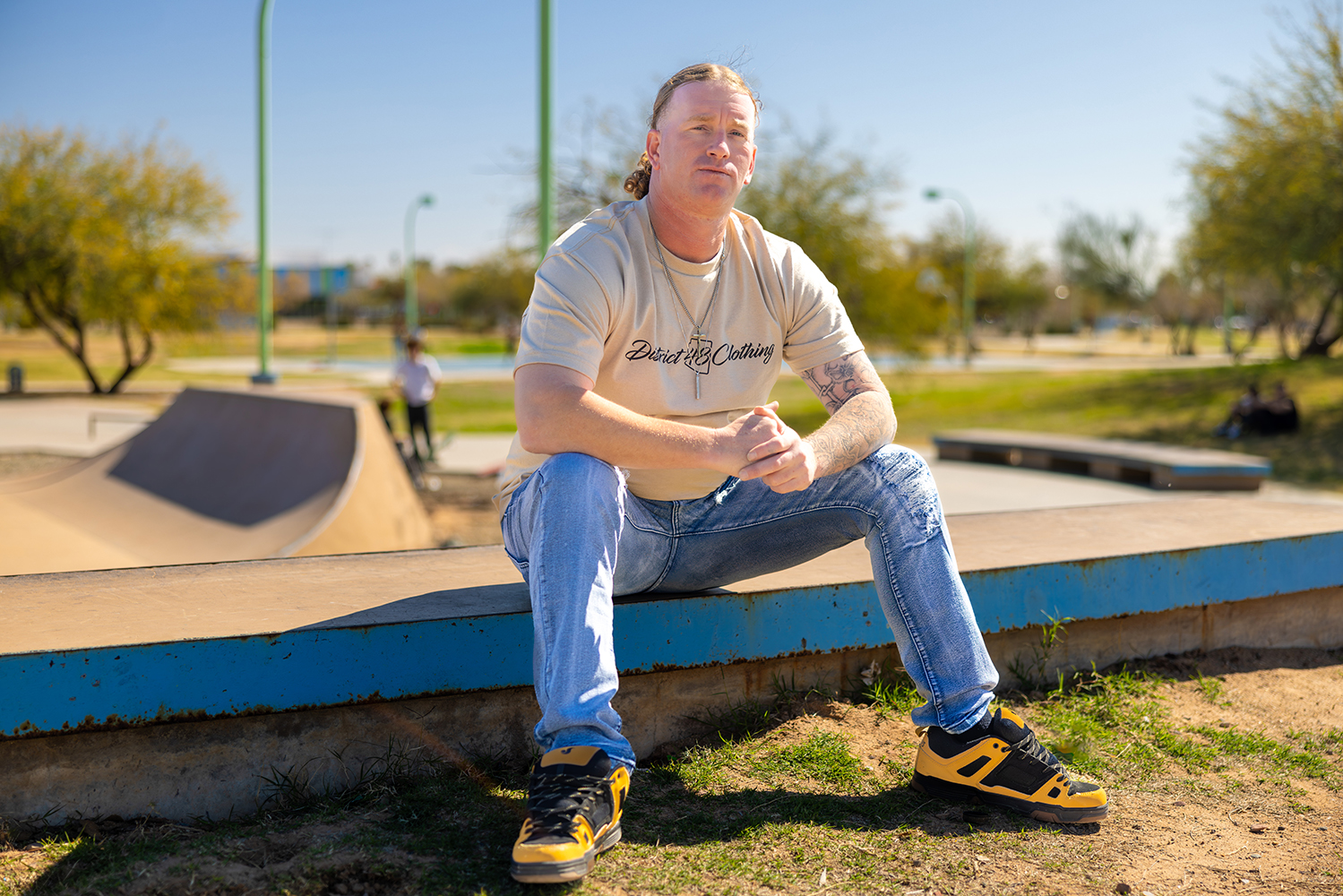
Although Ronnie was eligible for pretrial release if he could come up with enough money to pay the bail set against him, he remained in jail because he did not have the means to pay the $1,000 bail the judge assigned to him. Ronnie didn’t know how long he would have to remain incarcerated in jail. He was aware that in Maricopa County, it sometimes took up to a year before a case even went to trial or was otherwise resolved.
This endless cycle of arrest for people who use drugs is the result of our nation’s overreliance on policies that criminalize addiction while providing incarcerated people with little to no access to treatment or healthcare. One study by the Prison Policy Initiative found that of the nearly 3,000 local jails across the country, only half (54%) provide medications for people experiencing withdrawal and even a smaller percentage (41%) provide behavioral or psychological treatment.
Prior to the The Bail Project’s work in Phoenix, many incarcerated people were forced to pay for-profit bail bonds agents, even though the cost of hiring them was commonly out-of-reach for them and their families. Years before we launched our site in Phoenix, Ronnie said he and his family relied on hiring bail bond agents to pay his bail.
For-profit bail bonds companies are notorious for their predatory tactics and unethical practices. When working with a bail bonds agent, friends or relatives of incarcerated individuals are often required to sign contracts with onerous conditions, including non-refundable fees and severe financial penalties for missed payments. Many people agree to installment plans with extreme interest rates that drive already destitute families deeper into debt. Some people go so far as to offer up the deeds to their homes and titles to their cars as collateral just so they can bring their loved ones home.
Typically, these contracts also allow bail bond agents to use radical tactics to collect missed payments or locate an individual if they miss court. Invasion of privacy and harassment are common ploys. “I’ve had bounty hunters knocking on my aunt’s door at 11:00 p.m. at night,” Ronnie said. “Bondsmen are punitive. They do the least and get paid the most. It’s to make money and a profit.”
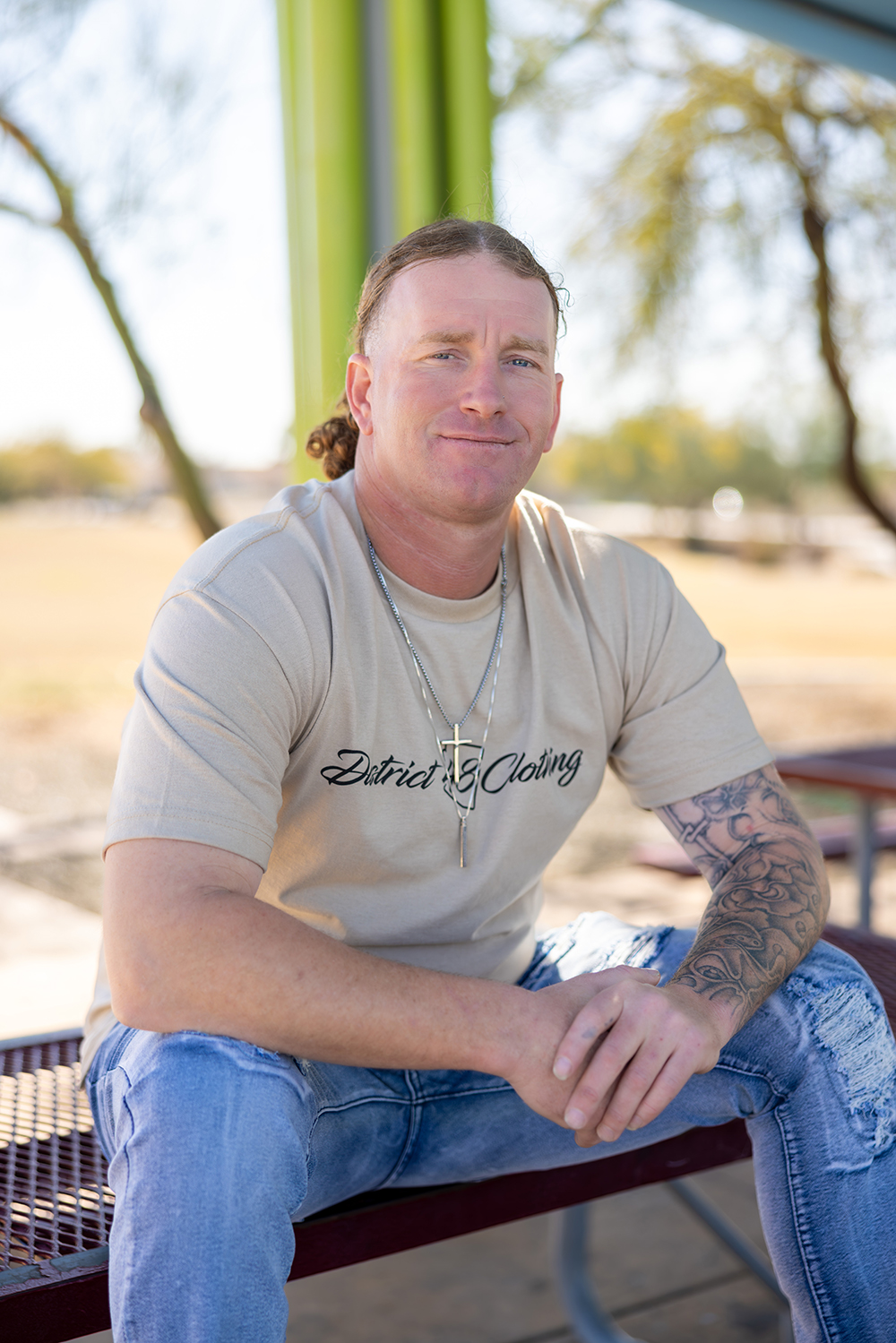 Ronnie’s struggles with addiction didn’t begin until after he graduated high school. During his 20s and 30s, it grew gradually worse. “My choices and decisions after high school took me in a bad direction,” he said. Sometimes referred to as frequent utilizers, Ronnie spent most of the last two decades cycling in and out jails and prisons because of various drug-related offenses. This can happen when a person’s complex and difficult-to-treat behavioral, medical, and social needs go unmet, fueling the cycle of incarceration. “I never lasted two weeks on the streets when I got out of being incarcerated,” Ronnie said.
Ronnie’s struggles with addiction didn’t begin until after he graduated high school. During his 20s and 30s, it grew gradually worse. “My choices and decisions after high school took me in a bad direction,” he said. Sometimes referred to as frequent utilizers, Ronnie spent most of the last two decades cycling in and out jails and prisons because of various drug-related offenses. This can happen when a person’s complex and difficult-to-treat behavioral, medical, and social needs go unmet, fueling the cycle of incarceration. “I never lasted two weeks on the streets when I got out of being incarcerated,” Ronnie said.
Even though this strained Ronnie’s relationship with loved ones, his family never wavered when it came to showing him love or support. They had always shared a close relationship. Before being incarcerated, Ronnie enjoyed spending time with his sister and parents, and later his niece. But his dad was who he was always closest with. He described him as a loving and hardworking blue-collar man who spent his career doing road construction work. “I looked up to him,” Ronnie said. “He made sure we had a roof over our heads and food on the table.”
Ronnie’s worst nightmare has always been one of his parents dying while he was incarcerated. His worst fear came true in February 2023, while he was serving his four-month prison sentence. His father died of an unexpected heart attack. Ronnie was bereft. He sought refuge with sober people and regularly attended Alcoholics Anonymous (AA) meetings. “It was rough, but I surrounded myself with people who helped me,” he said. “I’m still going through it, though, and I have my times when I break down.”
After he was transferred to Maricopa County Jail to face the new charge, Ronnie knew if he didn’t find a way to pay bail he faced a serious risk of relapsing. Jail is no refuge for an addict: despite the higher levels of security, incarcerated people can still gain access to narcotics. For people in recovery, the stress of jail settings can be enough to trigger a relapse. Now, Ronnie had the added stress of coping with the death of a family member from inside a jail cell, separated from family. He called his sister and told her about how The Bail Project could help with free bail assistance. Although their relationship had been strained and they were not in contact often, his sister agreed to fill out an application on his behalf. “My family came on board,” he said.
A few days later, Ronnie dreamt of his father. As if to test him, his father asked if he was ready to stay sober and be bailed out. Ronnie said he was and then woke up. Two days later, Ronnie received a call from staff at The Bail Project letting him know we were paying his bail. “He’s looking over me,” Ronnie said. “My dad was always the person helping everybody…He’s still doing that.”
After The Bail Project posted bail and Ronnie was released from jail, he went directly to the New Freedom Recovery Center, an outpatient drug treatment program, where he stayed for three months. While his case progressed in the months that followed, Ronnie demonstrated his commitment and capacity for change. He trained to become a peer support specialist so that he could use his lived experience in recovery to help others overcome addiction. He also graduated from culinary school, gained employment as a welder, and had his driver’s license reinstated. Ronnie’s greatest achievement, he said, has been his improved relationship with family. “My dad carried everybody’s load on his shoulder,” he said. “Now it’s time for me to carry the load.”
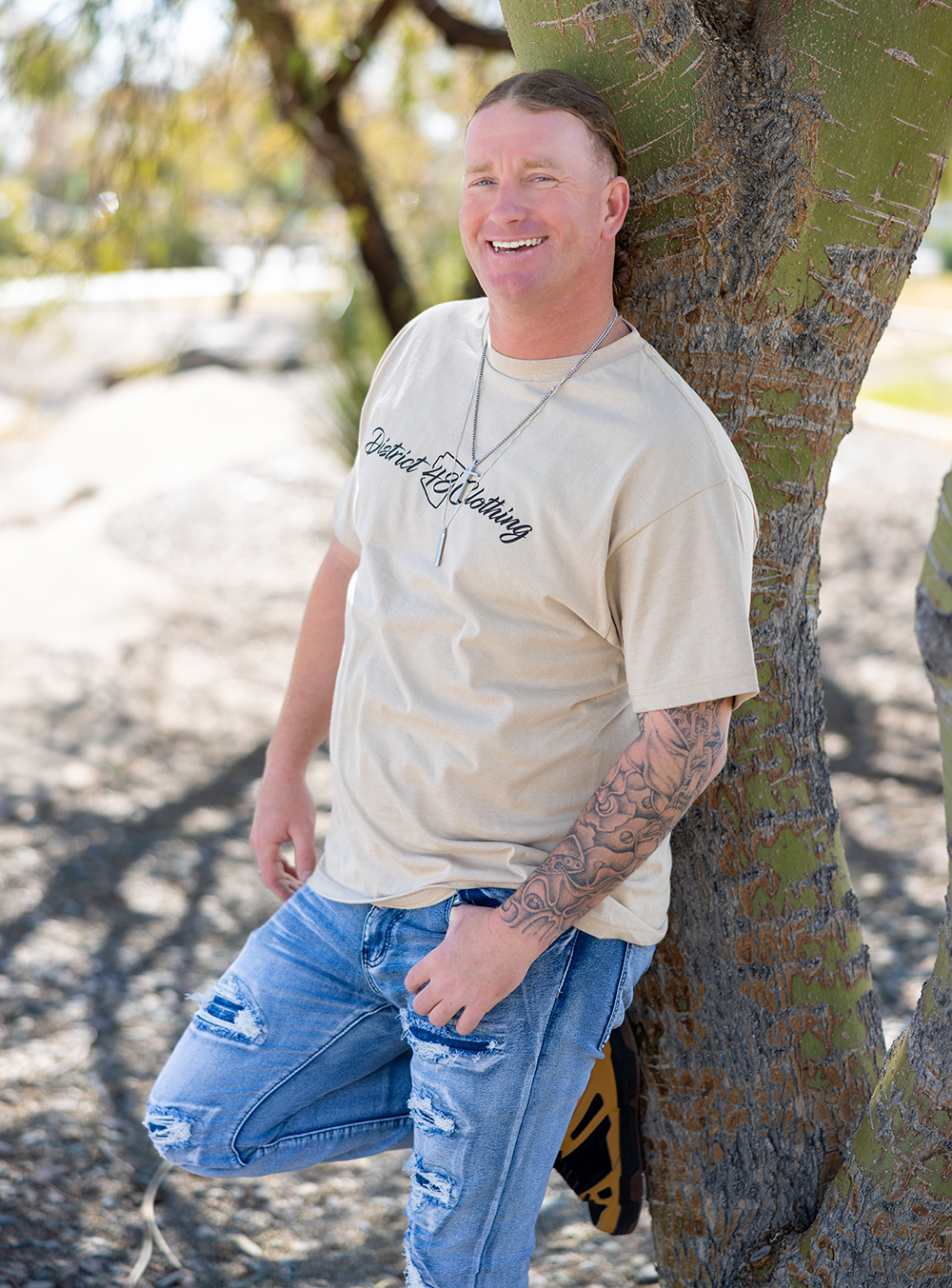 In January 2024 – one year after he had been transferred to the county jail – Ronnie’s case was finally resolved. Recognizing his commitment to sobriety and his progress post-release, the court sentenced him to three years probation, which meant he could stay out of jail and continue to work on himself. Had The Bail Project not paid his bail, Ronnie would have spent an entire year in county jail, instead of within healing spaces that helped bolster his recovery and stabilize his life.
In January 2024 – one year after he had been transferred to the county jail – Ronnie’s case was finally resolved. Recognizing his commitment to sobriety and his progress post-release, the court sentenced him to three years probation, which meant he could stay out of jail and continue to work on himself. Had The Bail Project not paid his bail, Ronnie would have spent an entire year in county jail, instead of within healing spaces that helped bolster his recovery and stabilize his life.
“You guys were a big stepping stone. You gave me the opportunity to get out, continue working on my recovery, and to join a treatment program.”
Ronnie’s story is one of many that illustrates how charitable bail organizations, such as The Bail Project, not only reduce the financial burden that incarceration has on people, but also improve the health and safety of that individual. “If I had to remain sitting in jail, I wouldn’t have been able to show the court that I could change my life,” he said. “You guys were a big stepping stone. You gave me the opportunity to get out, continue working on my recovery, and to join a treatment program.”
Thank you for reading. The Bail Project is a 501(c)(3) nonprofit organization that is only able to provide direct services and sustain systems change work through donations from people like you. If you found value in this article, please consider supporting our work today.







